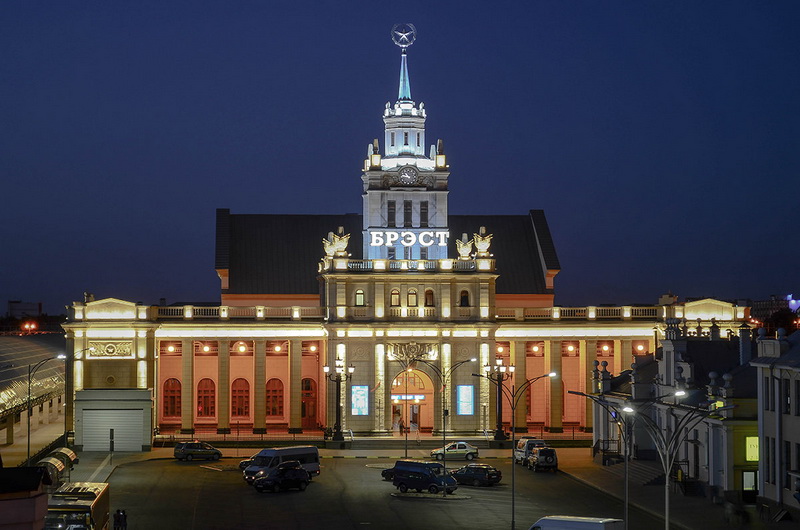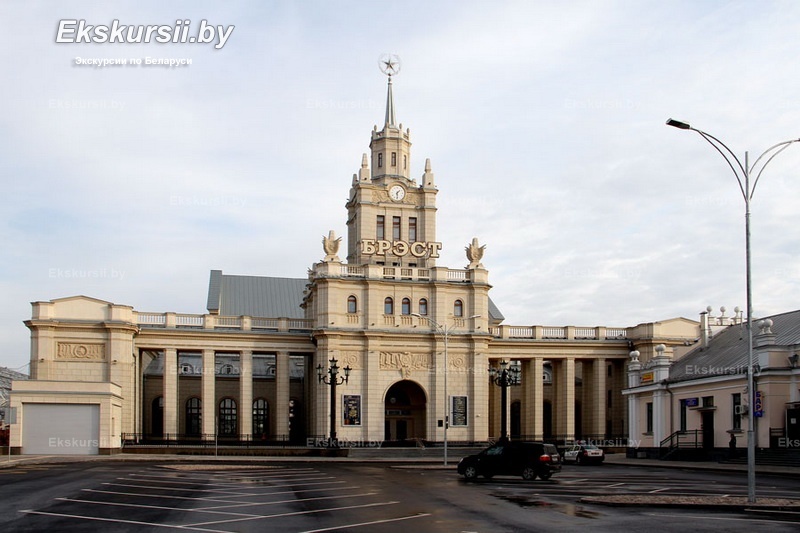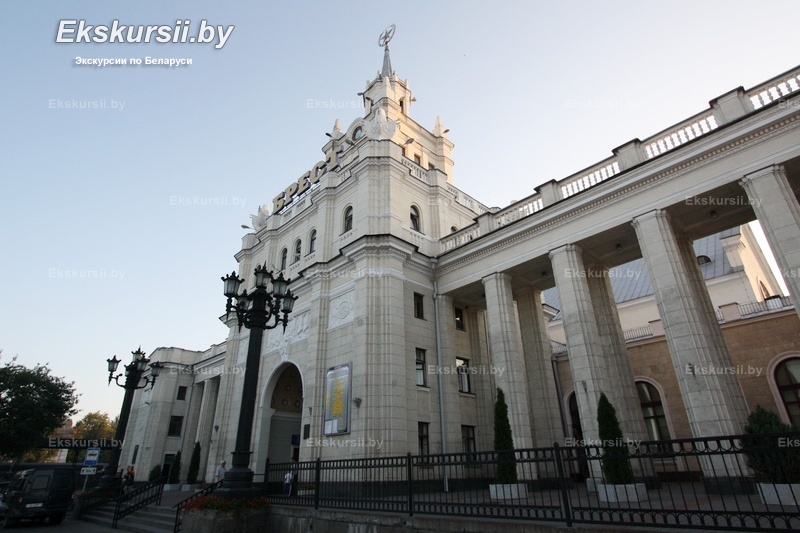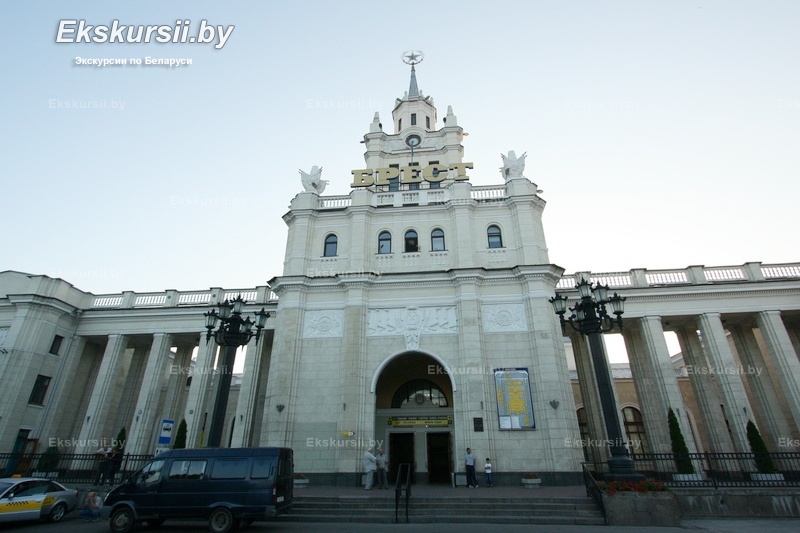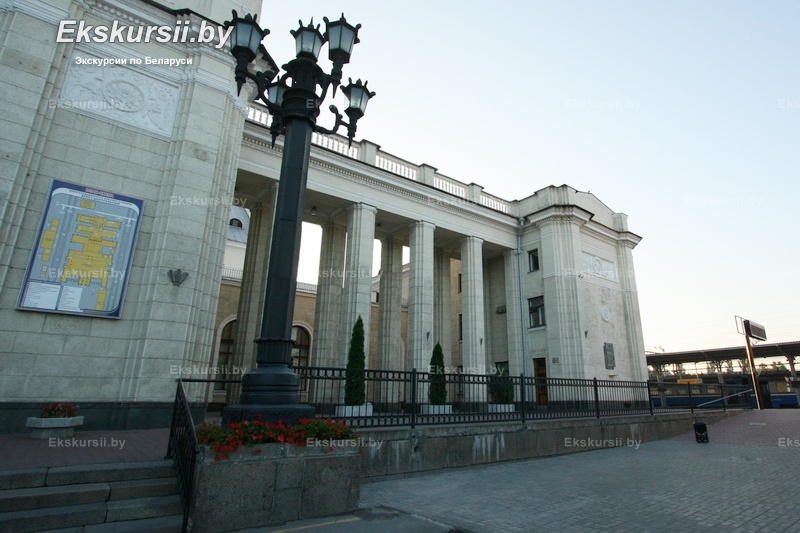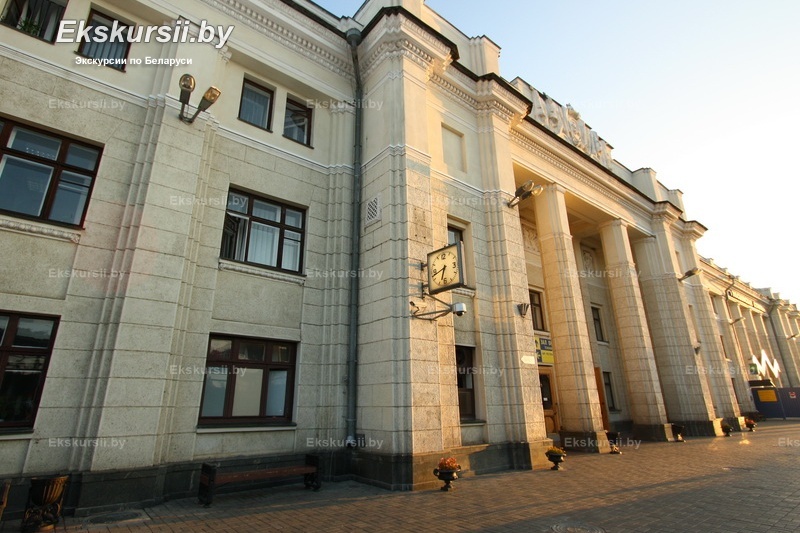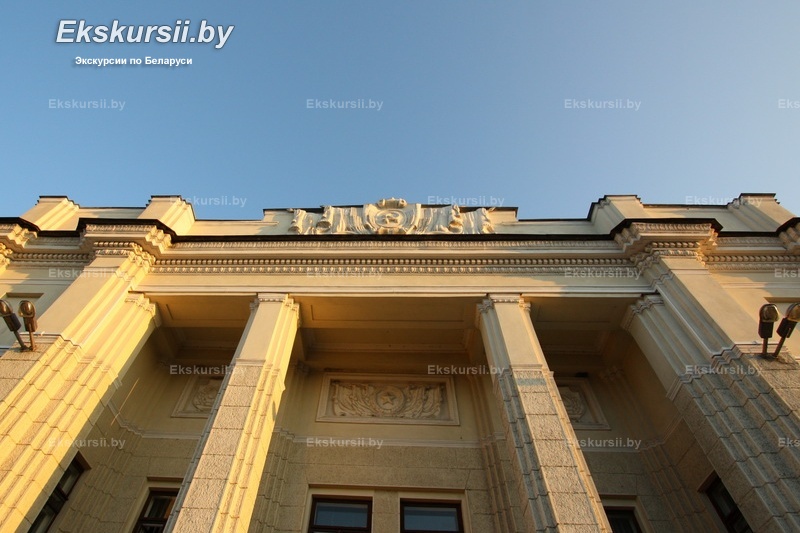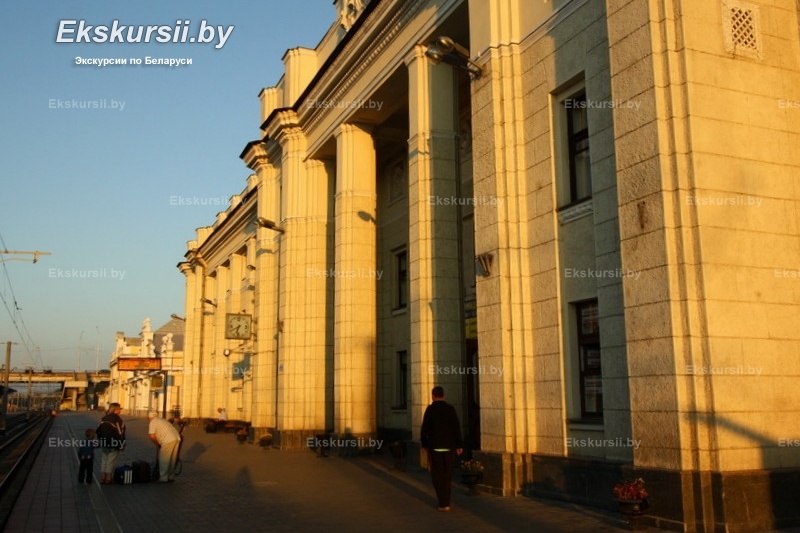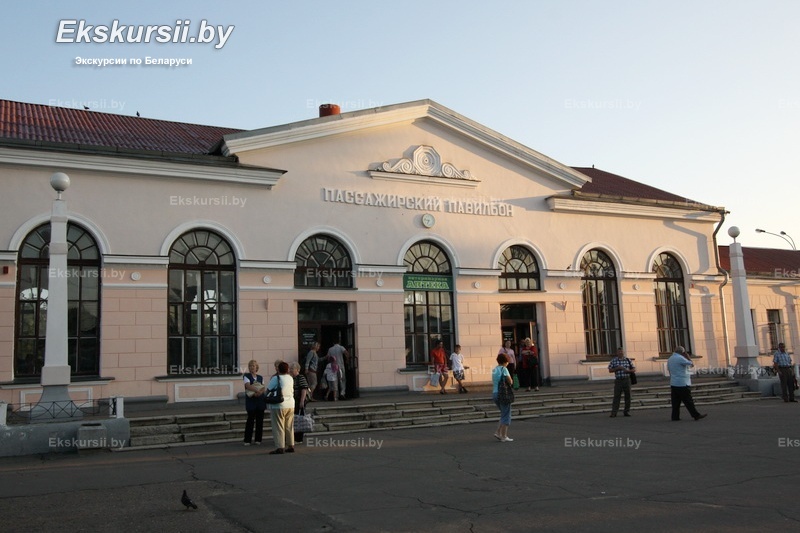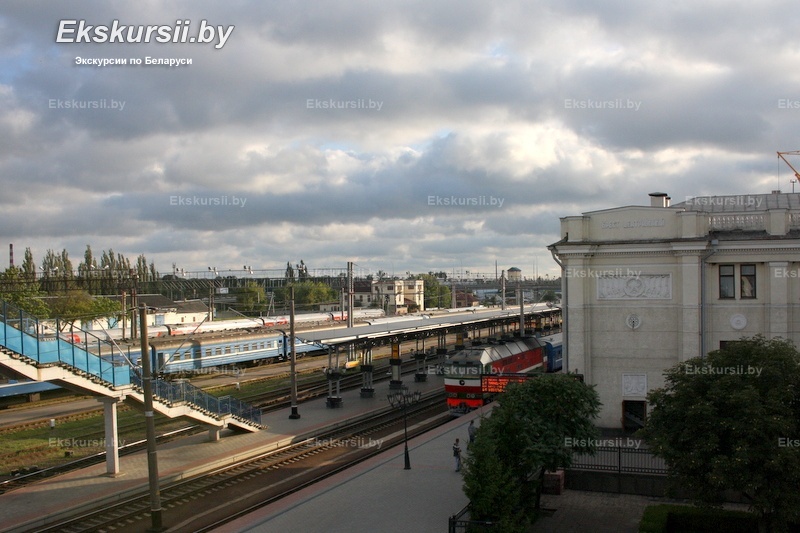History of the Station
The Brest railway station was built in 1886 and became a key station on the railway connecting Western Europe and Russia. The original station building was designed in the Neo-Renaissance style and impressed with its monumentality. However, during the wars, the station was repeatedly destroyed and rebuilt.
During World War II, the building was severely damaged and had to be almost completely reconstructed. The station acquired its modern appearance in 1953 when its large-scale restoration was completed. Today, Brest station is not only a functioning railway station but also a historical site preserving the memory of past events.
Architectural Features
Brest station is considered one of the most beautiful railway stations in Belarus. Its exterior combines elements of classicism and Neo-Renaissance. The interior of the waiting hall is adorned with massive chandeliers, stucco moldings, and stained-glass windows, creating the atmosphere of an old railway era.
One of the station's key features is its famous glass dome, which allows natural light to enter and gives the interior a special charm. The building also houses an antique clock and mosaic panels reflecting the historical past of Brest.
Guided Tours with a Visit to the Station
Brest Railway Station is an important point on the city's tourist map. For travelers arriving here, it becomes the first place of acquaintance with Brest. Many tours from Minsk include a visit to the station, as it represents not only an architectural value but also a symbolic place connecting Europe and Belarus.
Tourists interested in the history of railway transport and architecture can book a tour with a visit to the station to learn about its past, examine interesting details of the facade and interior, and experience the atmosphere of this historic site.
